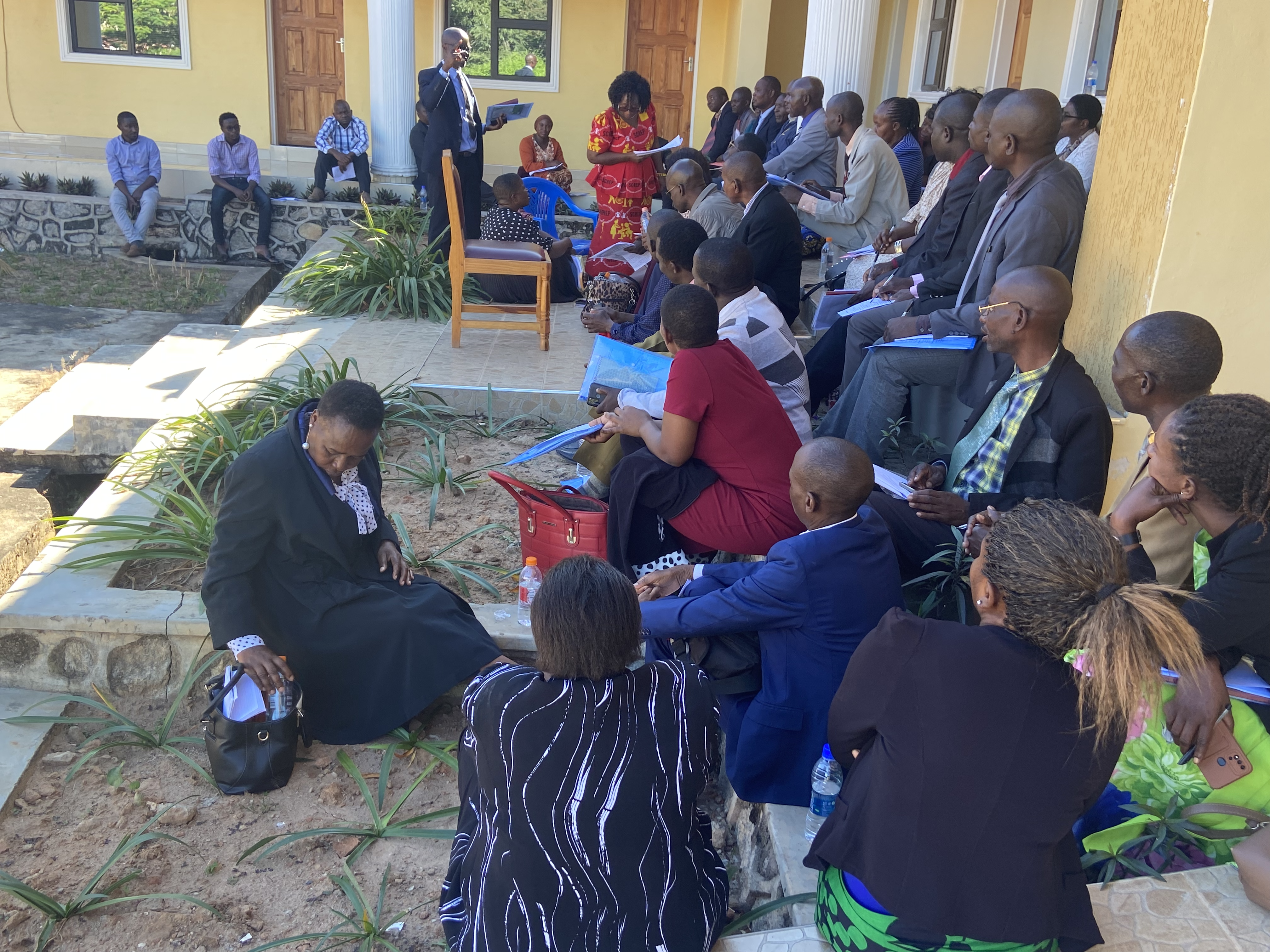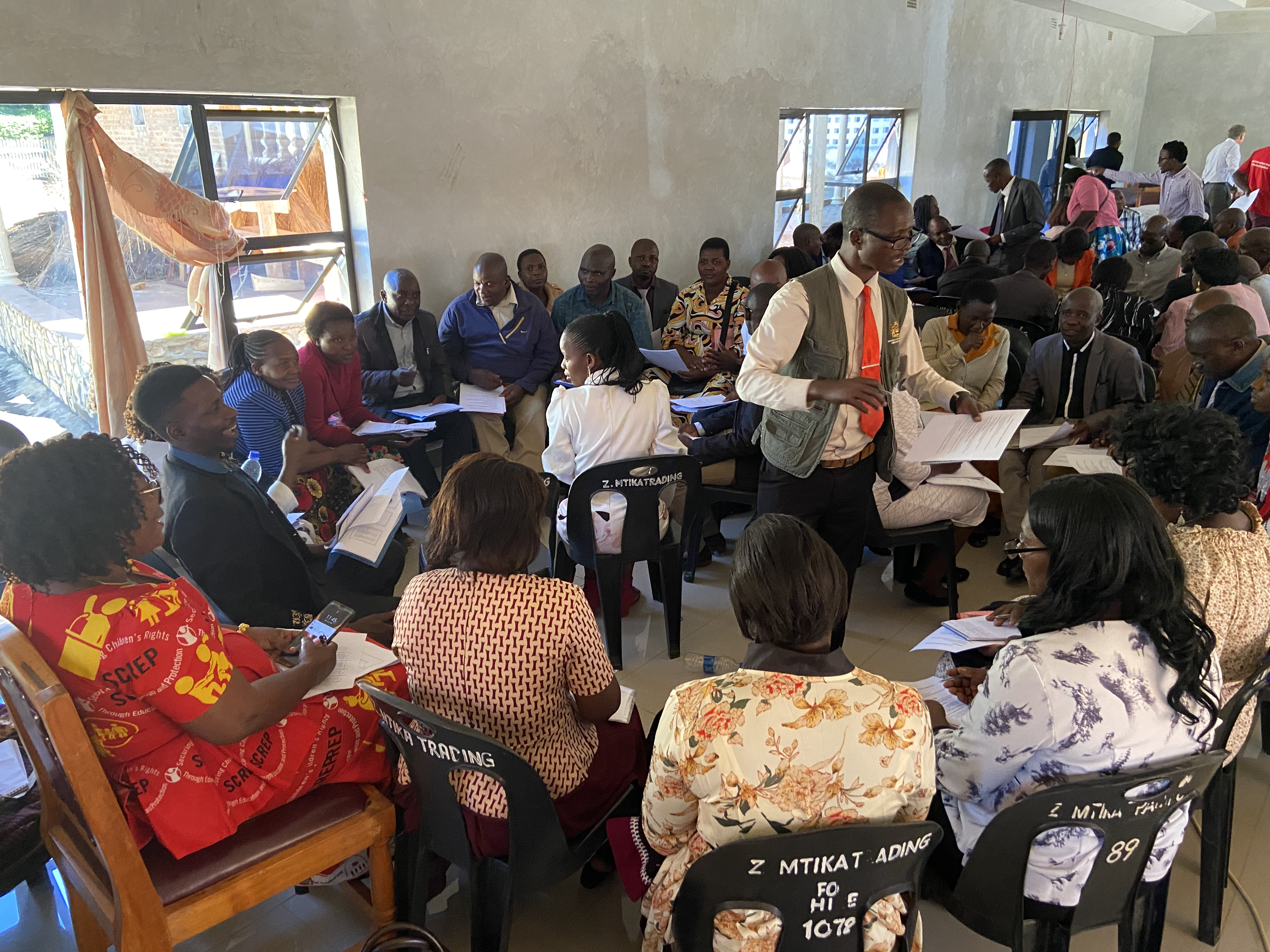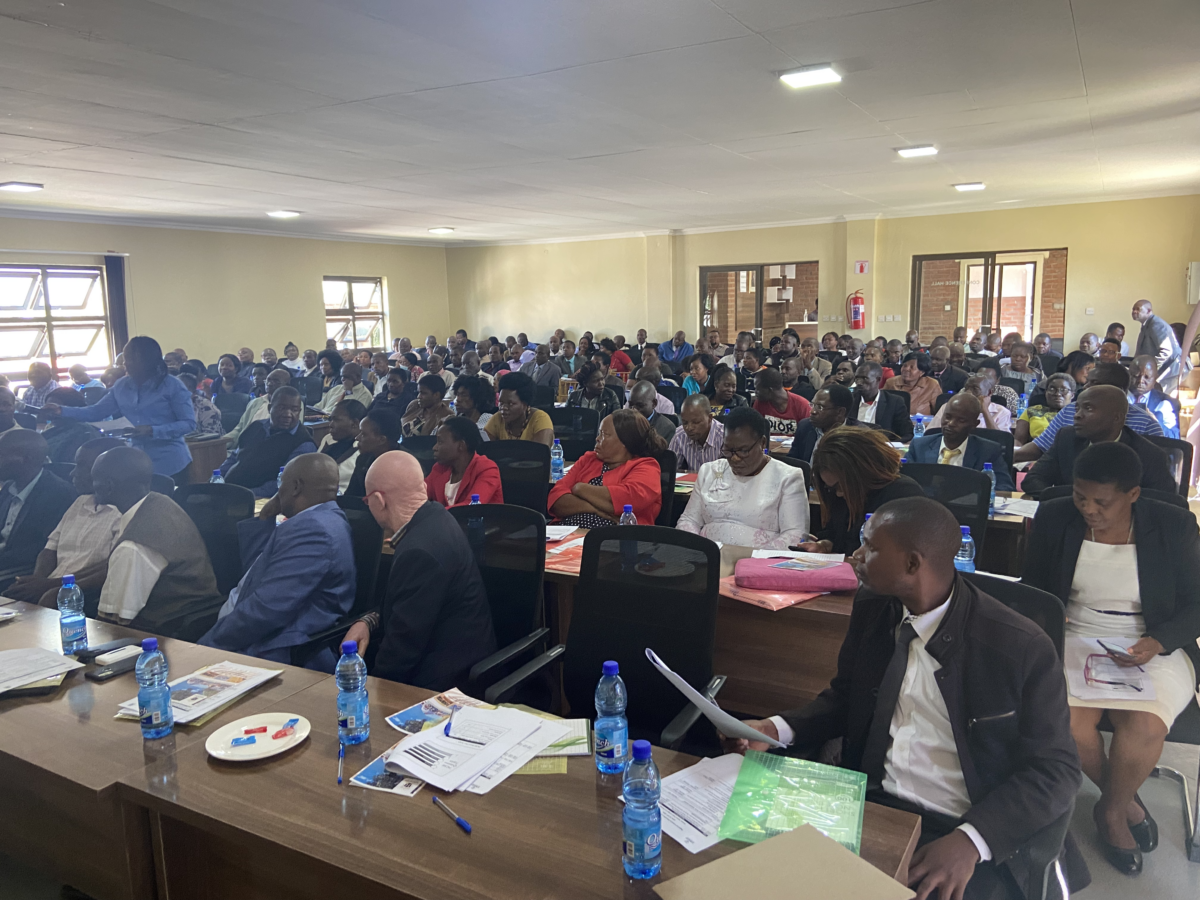Inclusive Education Convenings throughout Malawi: Putting research into practice

By Brent Elder, Chris Johnstone, and Augustine Kanyendula
The beginning of the Inclusive Education (IE) Convenings throughout Malawi sound like the beginning of a joke: “Directors of Education, Youth and Sports (DEYS), head teachers, specialist teachers, and general education teachers walk into a bar…” But, throughout the month of June, these IE stakeholders are not walking into a bar, they are walking into various conference halls ready to enact inclusive change for children with disabilities through Malawi. From regional IE Convenings in Mzimba in the north and Thyolo in the south, everyone from parents, to Organizations of Persons with Disabilities (OPDs), and members of the Ministry of Education’s (MoE) Department of IE are ready to turn research into practice. All of these activities are a part of USAID’s country-wide five-year $74M Next Generation (NextGen) inclusive early grade reading program where the goal is to achieve at least 30% literacy in Chichewa and English for children by the time they complete grade 2.
Why Convene?
The purpose of the IE Convenings are to review best practices in inclusive IE, Universal Design for Learning (UDL), and lessons learned from the previous USAID project on early-grade reading called Reading for All Malawi (REFAM). The intention was to share the lessons learned with a wide array of IE stakeholders (i.e., head teachers, special needs education (SNE) teachers, general education teachers, OPDs, various MoE Directorates, Regional and District IE coordinators, and parents of children with disabilities) to inform the NextGen program to identify concrete interventions to bring about a more inclusive education to meet the needs of all children.

One aspect of NextGen is to co-develop ideas for inclusive school improvement plans (SIPs). We were intentional about involving OPDs and parents because their stories based on lived experience with disability are so critical and often not included. Their input in the convenings helped emphasize why inclusion of learners with disabilities within SIPs is vital to implementing inclusive education throughout Malawi.
Following participant validation of lessons learned from the Regional IE Convenings, the verified lessons learned, participants worked together in district groups to develop practicval ideas for inclusive SIPs which they were going to take back to their respective school districts and prepare in order to apply for school improvement grants (SIGs). This is where participants put research into practice, and the convenings allowed for stakeholders to brainstorm together to take the next steps together.
What Next?

At the National IE Roundtable in Lilongwe, these plans were shared with the MoE, USAID, and other stakeholders to not only disseminate these emerging best practices in IE, but to gather guidance on how to share these approaches and practices with other schools, to effectively monitor inclusive SIP implementation, and how best to sustain these practices.
Although SIPs are not always what external agencies think of first when attempting to provide support for IE, they are a critical part of the work for IE in Malawi. SIPs are a process that involve engagement between schools and the MoE. The SIP development process is owned entirely by local teams, and the plans identify a series of actions that will take place during subsequent school years. Participants at this workshop identified that representation matters in this process – in order to think about IE for children with disabilities, these children’s parents and advocates need to be present in the SIP process. IE is a holistic endeavor for schools. Ideas for SIPs from these convenings included easy, no-cost actions like sharing ideas about inclusion in schools, to thoughtful interactions on investments school could make to promote inclusion through SIGs. IDP helped bring partners together and facilitate conversations, but in the end schools and districts ultimately owned the SIP brainstorms and subsequent processes to follow. Although there was plenty of laughter and jokes told at this convening among colleagues and friends, when a minister, head teacher, and teacher walked into the room at this convening, serious results followed.
